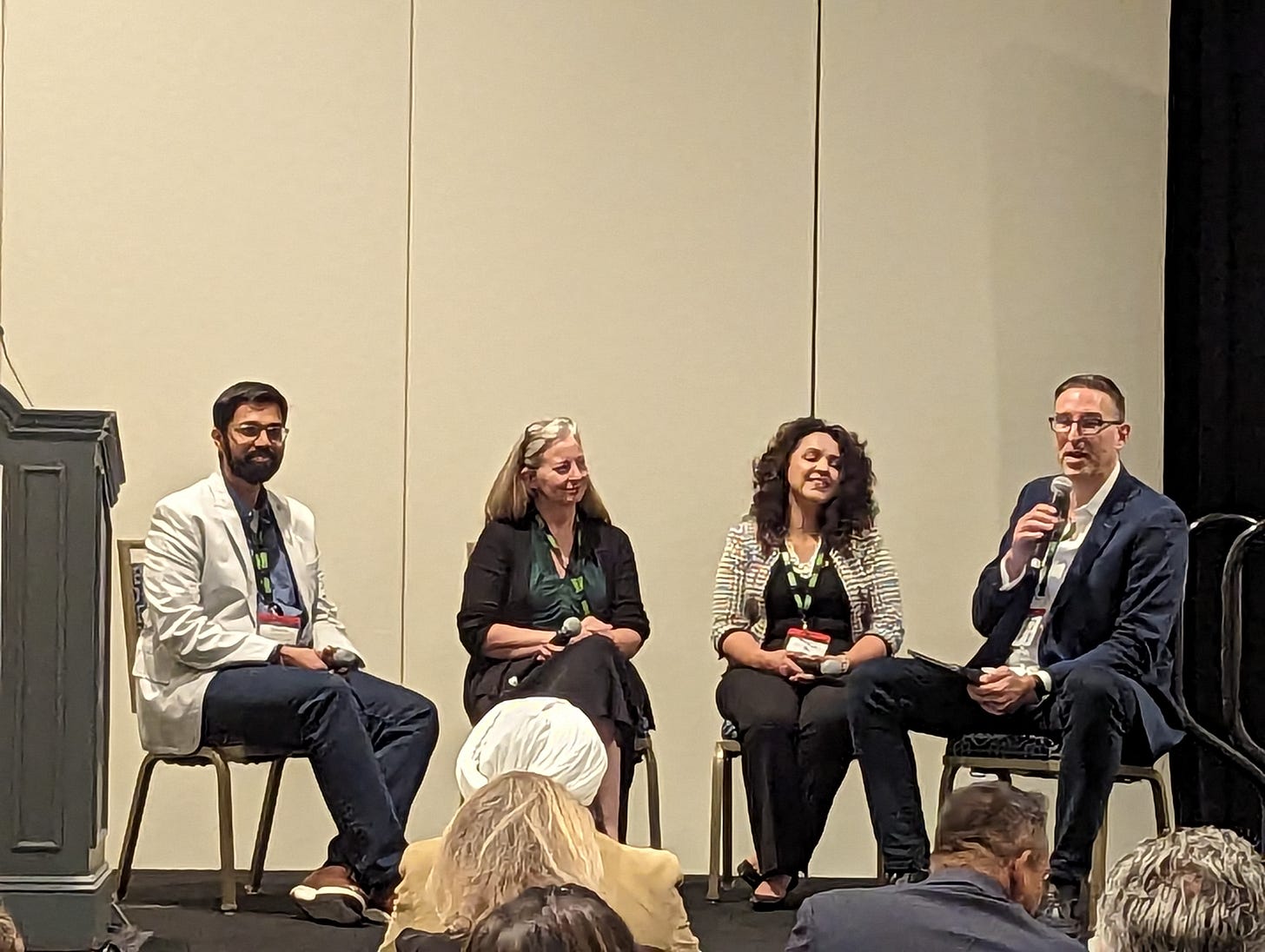Learnings on Data Sharing from World Orphan Drug Congress
Every talks about data sharing but few actually understand it

I attended the World Orphan Drug Congress in Washington D.C this week. It was an exhilarating experience to about CuresDev for the very first time to potential customers, investors, partners and friends in the rare disease space. I also spoke at a panel on data sharing in front of a packed room of nearly 50 people.
Here are my take aways from the conference:
Learnings
Every talks about Data Sharing but few actually understand it. Customers, partners and patients need more education on the details of data sharing. Data sharing is slowed down by fears, misconceptions, and real but solvable technical challenges.
Vendor selection is a real blocker to progress: “Which vendor should we use for our data collection?” is a question every patient foundation spends months, if not years, trying to answer. Irrespective of their decision, in a few years, they are unhappy and want to switch. Switching vendors is painful, expensive and an even harder decision to make.
Fears, real or imaginary, are slowing down data sharing. privacy laws (HIPAA/GDPR), IRB compliance and losing competitive edge is contributing to substantial headwinds to data sharing across the board - biotech companies, patient foundations, academia and everyone in between. Contributes to frustration, fragmentation and lack of trust.
Sharing data is prohibitively slow and expensive. The actual act of copying data from two companies is a expensive and a huge impediment - Internal teams don’t have time to pull data; De-identification services are very expensive and require executive budget approvals; Exported data may have wrong columns or wrong data; several months of back-n-forth to align on data dictionary & data cleaning; slow and expensive process causes frustration and loss of interest in current or subsequent data sharing exercises.
Disease communities take it upon themselves to protect patient privacy. They set their own rules, decide what data to share with whom, and change their rules based on how the ecosystem has treated them. This creates a rift and fragmentation in the ecosystem Ex: If a biotech company acquired natural history data and kept the foundation in dark, they might be more hesitant to to sharing entire datasets with biotech industry.
Opportunity for CuresDev is real. On the one hand, biotech and pharma industry is data hungry - they need more and better data on rare indications to help inform trial design, trial recruitment, pricing, investment decisions etc. On the other hand, patient foundations find it difficult identify and connect with right pharma partners to share their data with. CuresDev’s data sharing network can bridge the gap.
What went well?
Happy to meet people in-person at a conference after 3 years! Forged old friendships, and made many new friends
CuresDev is solving a real problem in rare diseases of data silos
Near immediate buy-in to the product we are offering. Conversation was around the details on timeline, cost, and practicality of using the product
People used the word “Disruptive” to describe CuresDev after I explained our solution
Customers trusted in me and my ability to deliver a product that met their needs
Open Source was perceived as a real value proposition to the vendor lock-in problem: What would happen to my data CuresDev goes out of business?
Barely any push back around privacy, compliance and other hard problems CuresDev is solving
What went poorly?
My pitch was too technical in the beginning. After about 14 hours of pitching people non-stop, I arrived at a pitch that immediately resonated with customers without losing fidelity of the product.
High-level motivation / product was easy to understand. I lost people’s attention once I got to the details using words such as “tokenization”, “open source”, “platform” etc.
Pricing model didn’t work:
It was too high for the value we delivered, especially for non-profits.
The same product delivered less value to early-stage diseases (no drugs/trials) versus more mature diseases with drugs or clinical trials.
Tired pricing reflecting the value we unlocked was preferred over a flat pricing for everyone
Yearly subscription pricing was preferred.
Lack of paying customers made my pitch and company look less credible. This is a chicken-and-egg problem that can be solved over time
CuresDev as a company was considered too small and too risky by some customers (no investors, little funding, small team, no advisors). Can we deliver?

